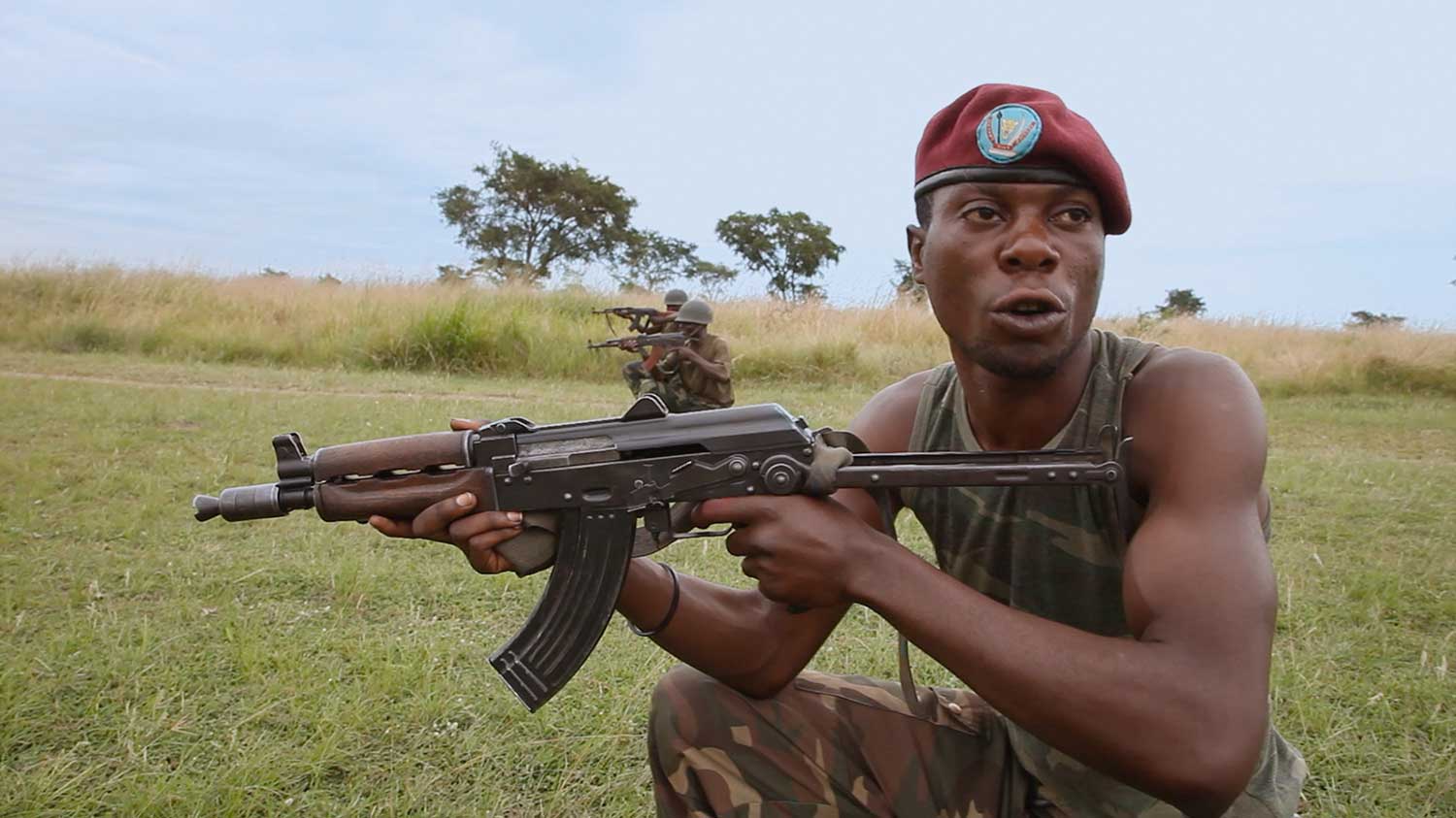There’s a pliability to the title of Daniel McCabe’s documentary “This Is Congo”: It’s both a contract between the author and his audience and an apathetic shrug of the shoulders. McCabe immediately announces his purpose in making the film, a primer on the status of the Democratic Republic of Congo, while also capturing the surrender his subjects give to that status. DR Congo is a land in flux and has been for centuries thanks to incursions from foreign interlopers as well as corrupt Congolese rulers. Its inhabitants know this. “This is Congo,” we’re told toward the end of the film. The phrase isn’t meant as an introduction. It’s meant as acceptance. This is Congo, torn by conflict, ever at war with itself. The film packs the nation’s awful history into just three words.
If we give McCabe sole credit for “This Is Congo,” the title feels like a brilliant orchestration of wordplay. If we give the people he and his crew interview credit instead, and likely he’d prefer we do that rather than giving it to him, it’s an expression of mourning. “This Is Congo” crams an incredible amount of background into just under ninety minutes, telling the story of how Congo came to be, well, Congo, a country colonized and demolished and looted over the passage of eras and countless lifetimes by wicked people at the expense of the rightful beneficiaries to its bounty of natural resources. At the same time, the film has the perspective to complement its three-pronged narrative. It’s more than an info dump. It’s an honest to goodness story.
You might also describe it as an act of daring. McCabe spends a good chunk of the movie in the company of Mamadou Ndala, a Colonel in the DRC’s armed forces and a hero in the eyes of its people. (Some of them, at least.) By the time “This Is Congo” reaches its third act, Mamadou has repelled soldiers of the March 23 Movement, or M23, or the Congolese Revolutionary Army if you prefer; he has attained heroic status and won the hearts of the villagers in Goma, the capital city in DR Congo’s North Kivu province, bordered by Rwanda with the edge of Uganda looming over it. We hear a lot about Goma from McCabe’s coterie of participants. Every Congolese tribe is represented in Goma. Violence makes itself at home here, too; it’s said that Goma’s main power is the power of the gun. We’re convinced well before McCabe films Mamadou and his men thwarting M23’s advance.
It’s not every day that a documentary shakes the ground as surely as the average blockbuster, or keeps us on the edge of our seat like a good thriller. “This Is Congo” doesn’t care to entertain us, but it does grip us. McCabe’s proximity to Mamadou is impressive enough when he’s merely an interviewee. His willingness to keep filming even in combat is jaw-dropping. “This Is Congo” drops us right into war’s center. It isn’t pretty. We’re spared gory details, of course; McCabe isn’t a vulture. But he’s able to get the point across regardless. DR Congo is a shattered country.
Amazingly, the film’s devotion to its truth lets us sympathize with Mamadou when we might not otherwise feel inclined to. We first meet him as his troops administer a severe beating to one of their comrades; the man walks away intact, but “This Is Congo” lets his cries for mercy pierce us without hesitation. They claw at us. The experience is horrible. McCabe doesn’t take a side here, really, other than the side of “the people” as an abstract concept. He’s clearly sympathetic to the plight of the Congolese caught betwixt the schemes of men eager to claim the Congo for its vast resources. To think of the country’s inborn wealth in contrast to the extreme poverty McCabe’s camera shows us is to confront the worst human horrors head on. The legacy of the Congolese is not prosperity but greed, embodied here by politicians who find both clandestine and overt ways of lining their pockets as everyone else suffers and starves.
But that greed extends to Mamadou, too. After he wins the day on behalf of his superiors, those very same superiors swoop in and start gobbling up the glory for themselves. Whatever you feel about the mechanics of the Congo’s seemingly endless wars, and the actors involved in them, it’s hard not to feel pity for Mamadou as he, too, is victimized by the avarice of the country’s rulers. Their hunger is absolute and insatiable. The film never quite asks us to take a side, preferring to merely document and let the viewer decide where they stand. All the same, it’s impossible not to feel anything other than disgust for the military brass and for the bureaucrats, not to mention the colonists and the slavers, who callously, selfishly take from the many to benefit the few.
“This Is Congo” has a point to prove and a righteous fury with which to prove it. But it’s focused and precise, which makes the sheer breadth of context required to understand it much easier to digest. If you know nothing about the Congo, McCabe has you covered — though nothing he does will prepare you for the shock of seeing firefights and artillery strikes this up close. [B+]





